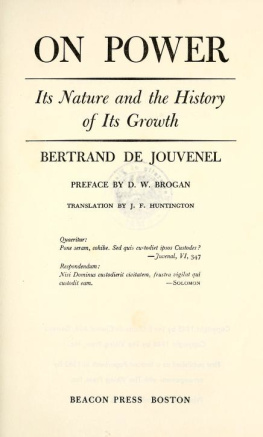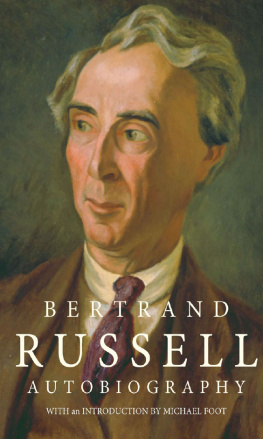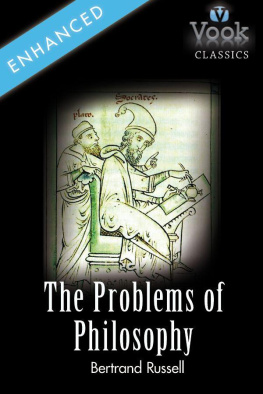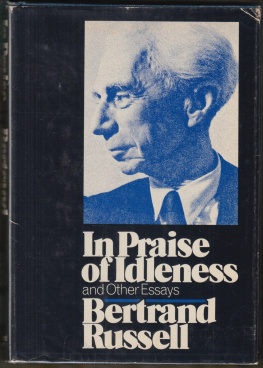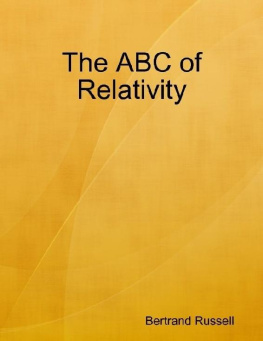PREFACE
In these ominous times, when the pressure of events makes calm thought difficult and when the apparent need of drastic measures makes hesitation, scepticism, criticism seem a form of petty treason, a book like M. de Jouvenel's may seem to need some justification. For it is a plea for hesitation and scepticism; it is an argument for not letting necessity, "the tyrant's plea", have all it sown way. Or, rather, it is an argument for a repeated stocktaking, for the scrutiny of every new proposal for extending the power of the state or of any other power-monopolizing body. And so it can be made to seem an argument that will weaken the will to action of the government and the will to obedience of the governed.
It is not that: M. de Jouvenel has too acute a sense of the world and age in which we live to ignore the necessities of that age. Bu this book is an argumentand a powerful argumentagainst leaps in the dark when they can be avoided, and an argument against the popular pretence that the darkness is in fact well lighted and the cliff merely a slight declivity.
In this book our attention is called, first of all, to what is, at any rate, a striking coincidence: the power of the state has steadily increased and the power of the human race for deadly mischief has increased at the same time. Written as the book was before Hiroshima, the most striking example of this parallel progress was not to the author's hand. But it is worth noting that when we regard with legitimate fear the potentialities of mischief inherent in modern science, we should continually remind ourselves that potentialities have only been actualized by the will of the state. It was not a spontaneously acting group of "scientists" who made the atomic bomb. It was a group of employees of the government of the United States who made the bomb, and the most important of them were scientists. But the decision to make it was the decision of President Roosevelt, as the decision to use it was the decision of President Truman. To state this is not to impute wickedness to either statesman; it is merely to call attention to the fact that only the state is powerful enough to do damage on this scaleand that the state always means politicians, whether they be politicians in the White
House or in the Kremlin. It is a dangerous and idle dream to think that the state can become rule by philosophers turned kings or scientists turned commissars. For if philosophers become kings or scientists commissars, they become politicians, and the powers given to the state are powers given to men who are rulers of states, men subject to all the limitations and temptations of their dangerous craft. Unless this is borne in mind, there will be a dangerous optimistic tendency to sweep aside doubts and fears as irrelevant, since, in the state that the projectors have in mind, power will be exercised by men of a wisdom and degree of moral virtue that we have not yet seen. It won't. It will be exercised by men who will be men first and rulers next and scientists or saints a long way after. It was an illusion of the framers of the early American constitutions that they could set up "a government of laws and not of men". All governments are governments of men, though the better of them have a high admixture of law toothat is, of effective limitations on the free action of the rulers.
It is possible, of course, to believe that a new system or a new doctrine will alter these empirically established laws of politics. It is possible to believe that only some easily identifiable and eradicable flaw in the older systems makes the doubts and fears of M. de Jouvenel plausible. In a world without private property, or without race prejudice, or without religion, or without rain on holidays, these depressing considerations will no longer apply. If you can believe that, as the Duke of Wellington said, you can believe anything. But it may be worth while recalling the disillusionment of Lenin(whom no one has ever accused of romantic optimism). Yet in State and Revolution Lenin, on the eve of the seizure of power, saw in the apparatus of the state a mere transitory and soon to be evanescent phenomenon. He learned better, and could he return to Leningrad, thirty years later, he would see installed there a state power more formidable than any known to the Czars, not because the "Revolution has been betrayed" but because, as M. de Jouvenel puts it, "Power changes its appearance but not its reality". Politics are about power; we cannot evade that truth or its consequences. We dream of a better world but it is in Utopiathat is, nowhere.
It is in the popularity of the pursuit of Utopia that the aggrandizers of state power find their most effective ally. Only an immensely powerful apparatus can do all that the preachers of panaceas promise, so we accept the apparatus but find that we have not got the beneficial effects of the panacea, or have got them at a very high, perhaps ruinous, price. It is one of the many merits of this book that it insists on the price paid even for historical triumphs like the French Revolution. Perhaps the Revolution was the only way out of the dilemma in which the French state under the ancien regime had involved itself. M. de Jouvenel's highly critical account of the behaviour of the French elites on the eve of the Revolution at any rate suggests that this was the case. But the price paid was terribly high. The Republic demanded sacrifices that no king had dared ask for, and these sacrifices were offered up. Perhaps the only way that the decadent Czardom could be replaced as the centre of Russian state authority was by the Bolshevik Revolution, but think of the price paid and still being paid for that achievement! If a religion or a general cause not identified with the nation-state asked for these sacrifices, we should be far more critical than we are. And even if we put at its highest the success of the modern state in doing what it promises to do, we have to notice that nothing is done free and that the price can be ruinous.
Another lesson is the necessity for scrutinizing all claims to political infallibility and impeccability.
"The right divine of kings to govern wrong" is a doctrine we can all laugh at today. But its defender did not deny that kings could govern wrong: that was their fault and their sin. But some modern deifiers of the state, democratic as well as totalitarian, preach and practise a doctrine of Divine Right far more uncritical than Filmer's. For their rulers, the Fuhrer or the Duce, the Party or the Sovereign People cannot do wrong, morally or intellectually. We are, most of us in the West, immunized against the doctrine of political infallibility and impeccability when it comes to us in the discredited forms it took in Berlin and Rome or even in the more sophisticated form it takes in Moscow. But we are not immune from "democratic" arguments which state or imply that a majority can do no wrong, if it is our majority; that, if we are part of it, it cannot do anything disastrously silly. It can and does. And M. de Jouvenel has rightly stressed the dangerous results of this illusion (whether Rousseau was its legitimate begetter or no matters little), for, of course, if the people is always right and the people is the state, then there can be no danger in surrendering into the hands of its mandatories complete, uncontrolled, and irrecoverable power.
But, since the people is not always right, is capable of going wrong morally and prudentially, it would be dangerous to relax the vigilance that is the price of liberty simply because power is in the hands of "the people". And in any case, power will not be in the hands of the people, but in the hands of rulers. For they are rulers, however chosen. "There is more in common between two deputies of whom one is a revolutionary and the other isn't, than between two revolutionaries of whom one is a deputy and the other isn't". And what Robert de Jouvenel wrote of the Third Republic is true of all commonwealths. Being a ruler is a trade. So we can apply to all types of ruler the judgment of Swift. "Arbitrary power is the natural object of temptation to a prince, as wine or women to a young fellow, or a bribe to a judge, or vanity to a woman". For the best of motives, rulers will, like courts, try to add to their jurisdiction.

